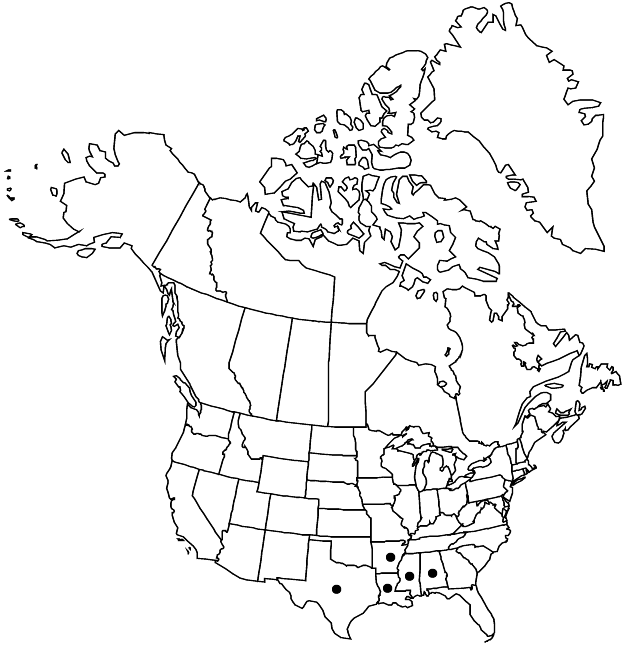Crassula longipes
Kew Bull. 39: 712. 1984,.
Plants aquatic or terrestrial, annual. Stems spreading (in water) or erect, yellow in age, branched, to 25 cm if aquatic, to 5 cm if terrestrial. Leaf blades lanceolate to oblanceolate, 2–5 mm, apex acute to obtuse. Inflorescences lax; flowers 1 per node. Pedicels 1–8 mm. Flowers 4-merous; sepals triangular-ovate, 0.4–0.7 mm, apex obtuse; petals lanceolate, 1.1–1.7 mm. Follicles ascending, 12–14-seeded, obliquely lanceoloid; old follicles spreading, flat. Seeds oblong with rounded ends, 0.2–0.4 × 0.1–0.2 mm, not papillate, dull, rugulose.
Phenology: Flowering spring.
Habitat: Aquatic or in wet sand or mud
Elevation: 0-400 m
Distribution

Ala., Ark., La., Miss., Tex., Mexico, s South America.
Discussion
M. Bywater and G. E. Wickens (1984) showed Crassula longipes in southern Florida, but according to D. B. Ward (pers. comm.), the record is probably based on a W. M. Carpenter collection from East Feliciana Parish, Louisiana.
Selected References
None.